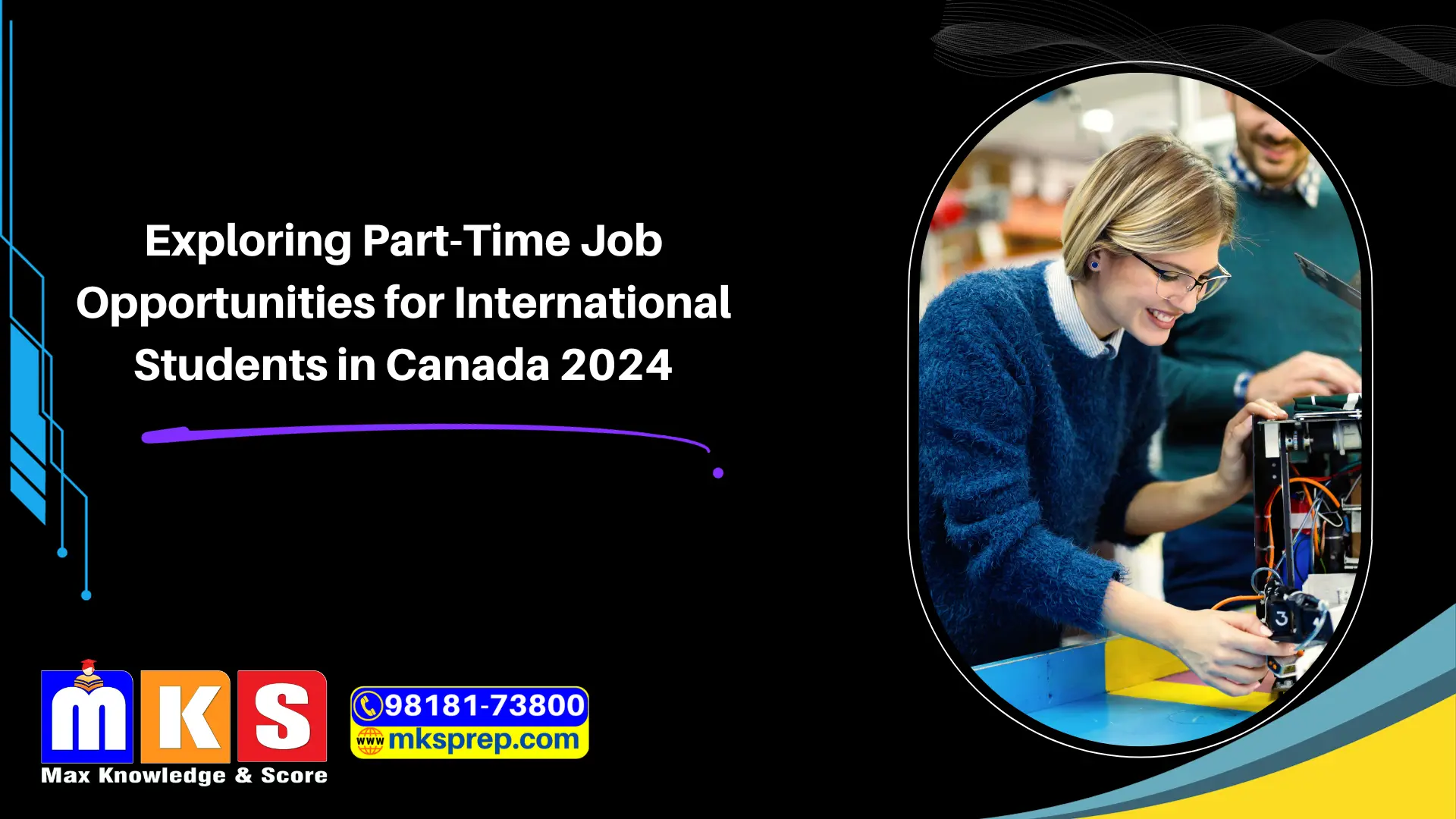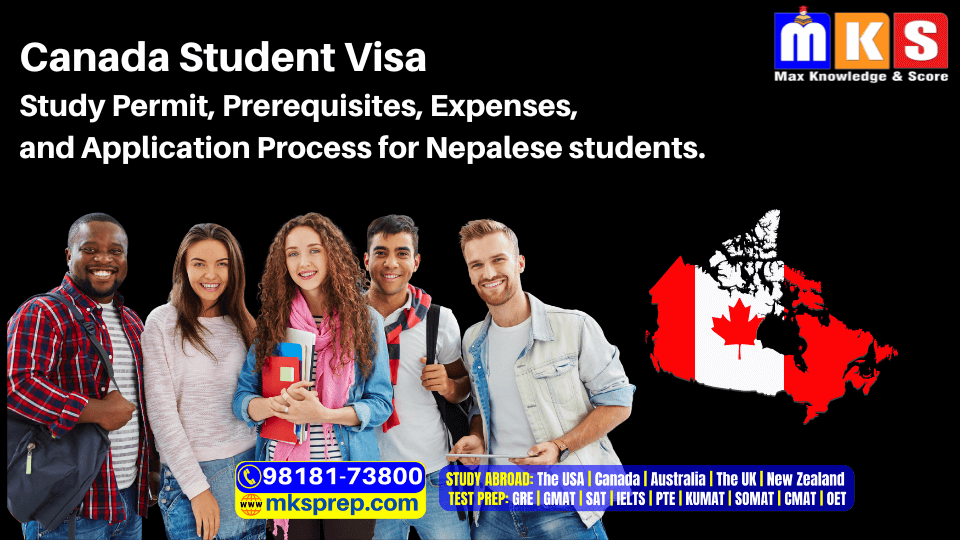
Canada’s Enhanced Work Opportunities: International Students Can Now Work Off-Campus for Extended Hours in 2024
If you are interested in studying in Canada, please fill out the form. Our counselor will reach out to you soon.
[ratemypost]
Explore more options
Share on social media.
Introduction and Overview
Canada Eases Work Restrictions for International Students Amid Labor Shortages
In a strategic move to address the ongoing labor shortages in Canada, the country’s Immigration Minister, Sean Fraser, recently announced a temporary measure to facilitate the workforce through international students. The groundbreaking decision allows over 500,000 international students in Canada to increase their work hours, effectively lifting the 20-hour work restriction starting from November 15, 2022, until December 2023. This significant policy shift is expected to benefit not only aspiring students but also the Canadian economy at large.
A Solution to Labor Shortages
Canada has proactively removed the 20-hour work restriction imposed on international students to combat the historic labor shortages and sustain its impressive economic growth. The Canadian government acknowledges the crucial role played by international students in filling the approximately 10 lakh job vacancies, a move that aligns with its commitment to economic resilience.
Key Highlights of the Temporary Measure
- Scope of Relaxation: The temporary measure applies not only to new international students but extends its benefits to foreign nationals who have already applied for a study permit.
- Duration of the Initiative: Effective November 15, 2022, until December 2023, this initiative aims to address the immediate labor shortages and relieve students and employers.
- Financial Empowerment for Students: The lifting of the 20-hour work restriction during scheduled breaks, such as summer and winter holidays, enables international students to manage their finances more effectively, covering a significant portion of their overall expenses.
- Rising Demand for Study Permits: The surge in study permit applications is evident. Canada has processed over 4.52 lakh applications since January, marking a substantial 23 percent increase compared to the previous year.
Meet MKS Education – A Trusted Consulting Partner
In navigating the complexities of studying abroad and making the most of this opportunity, MKS Education emerges as a reliable consultancy in Nepal. Backed by top-notch services and a reputation highlighted by positive Google reviews, MKS Education stands out as the go-to consultancy for students aspiring to study in Canada.
Services Offered by MKS Education
- Fast Processing: MKS Education prides itself on expeditious processing, ensuring students can swiftly navigate the study abroad journey.
- Exp Counselors: With a team of friendly and highly experienced counselors, MKS Education provides personalized guidance, making the application process seamless.
- Application Management System (AMS): The consultancy introduces an innovative Application Management System (AMS), which not only tracks the progress of the study abroad journey but also guides students with samples and valuable insights.
- Connectivity through AMS: MKS Education’s AMS facilitates easy and direct communication with counselors, ensuring students receive timely and comprehensive assistance at every step.
Eligibility Criteria for Off-Campus Work Permit
Who Qualifies for the Off-Campus Work Permit?
International students who leverage the eased work restrictions must meet specific eligibility criteria. The following conditions outline who qualifies for the off-campus work permit:
- Possession of Valid Study Permit: Eligible students must hold a valid study permit, emphasizing the importance of legal documentation in participating in off-campus work opportunities.
- Enrollment in a Designated Learning Institution (DLI): The off-campus work permit applies to full-time students at a Designated Learning Institution (DLI), underlining the commitment to education while contributing to the workforce.
- Participation in a Recognized Program: Students must be part of an academic, vocational, or professional training program for at least six months. This requirement ensures that the skills gained align with the needs of the Canadian job market.
- Satisfactory Academic Standing: Maintaining good academic standing is crucial for students to continue benefiting from the off-campus work permit, emphasizing the balance between work and academic responsibilities.
- Possession of a Social Insurance Number (SIN): To engage in off-campus work legally, students must obtain a Social Insurance Number (SIN), a vital step in ensuring compliance with Canadian regulations.
Adapting to Changing Circumstances
Students should be aware that they must cease working under certain conditions if their situation changes and they no longer fulfill the eligibility criteria while actively working off-campus. This emphasizes the importance of ongoing compliance with the specified requirements.
Ineligibility for Off-Campus Work Permit
Exceptions to Off-Campus Work Opportunities
While the temporary measure opens up new possibilities for many international students, specific categories remain ineligible for the off-campus work permit. The following groups are exceptions to this policy:
- Language Program Enrollees: International students enrolled in English or French as their second language programs are not eligible for the off-campus work permit, emphasizing the focus on academic and vocational programs.
- Exchange Students at DLI: Students participating in exchange programs at a Designated Learning Institution are also excluded from the off-campus work permit, highlighting the targeted nature of this initiative.
- General Interest Program Students: Those pursuing available interest programs are not eligible for the off-campus work permit, reinforcing the alignment of the policy with programs contributing directly to Canada’s workforce needs.
The Impact on Canada’s Labor Market
The decision to relax work restrictions for international students aligns with Canada’s broader strategy to address labor shortages and maintain a robust economy. With almost 10 lakh job vacancies and a historically low unemployment rate, the Canadian government’s forward-thinking approach seeks to integrate skilled international students seamlessly into the workforce, contributing significantly to the nation’s growth.
Implications and Benefits for International Students
Empowering International Students for Success
The eased work restrictions hold immense potential for international students, offering a range of benefits that enhance their overall experience in Canada:
- Financial Stability: Removing the 20-hour work restriction allows international students to secure more substantial part-time employment, providing them with increased financial stability. This, in turn, helps cover living expenses and contributes to a more comfortable and enriching stay in Canada.
- Skill Development: Working additional hours enables students to gain global work experience. This hands-on experience complements their academic learning, enhancing their skill set and making them more competitive in the job market upon graduation.
- Career Opportunities: The expanded work opportunities contribute to international students’ integration into the Canadian workforce. It opens doors to potential career pathways, allowing them to explore and align their skills with the demands of the Canadian job market.
The Economic Impact on Canada
The decision to relax work restrictions for international students is a strategic move with far-reaching implications for Canada’s economy:
- Addressing Labor Shortages: With the historic labor shortages, international students serve as a valuable resource to fill the existing job vacancies. Their increased participation in the workforce aids in mitigating the impact of the need, fostering economic stability.
- Contributing to GDP Growth: As international students actively contribute to the workforce, their economic impact extends beyond labor shortages. Their spending on living expenses, tuition, and other necessities bolsters Canada’s GDP, fostering economic growth.
The Role of Consultancy Services – MKS Education
Navigating Opportunities with MKS Education
MKS Education, recognized as the best consultancy in Nepal, plays a pivotal role in guiding students through this transformative period:
- Expedited Processing: MKS Education’s commitment to fast processing ensures that students can swiftly navigate the evolving landscape of study abroad opportunities, capitalizing on the temporary measure introduced by the Canadian government.
- Experienced Counselors: With highly experienced and friendly counselors, MKS Education offers personalized guidance, assisting students in understanding the intricacies of the new work policies and making informed decisions aligned with their career goals.
- Innovative Application Management System (AMS): MKS Education’s Application Management System (AMS) provides a seamless experience, tracking students’ progress and offering valuable insights at every step. This innovative tool ensures students are well-informed and supported throughout their study abroad journey.
Connectivity and Support through AMS
MKS Education’s AMS tracks progress and facilitates direct communication with counselors. This connectivity ensures that students can quickly seek guidance, clarify queries, and stay informed about the latest updates in the ever-evolving landscape of international education.
In conclusion, the temporary measure to lift work restrictions for international students in Canada, coupled with the guidance provided by MKS Education, creates a synergistic environment that empowers students to maximize their educational experience and contribute significantly to the Canadian workforce. As the global education landscape evolves, initiatives like these redefine the opportunities available to aspiring students, making Canada an even more attractive destination for international education and career growth.
Looking Ahead – Future Opportunities and Considerations
Heading: Sustaining Momentum for International Students
As Canada adapts to the evolving global landscape, the decision to ease work restrictions for international students opens doors to a host of future opportunities:
- Potential Policy Extensions: Considering the success and positive impact of the temporary measure, there’s the possibility of policy extensions or the introduction of more permanent solutions to integrate international students into the Canadian workforce further.
- Diversification of Skill Sets: The extended work hours empower students to diversify their skill sets, contributing to a more dynamic and adaptable workforce. This aligns with Canada’s goal of fostering innovation and competitiveness on the global stage.
Challenges and Considerations
While the move to increase work hours for international students is mainly positive, specific challenges and considerations should be acknowledged:
- Monitoring and Compliance: The Canadian government may need to implement robust monitoring mechanisms to ensure students adhere to the specified conditions, preventing potential abuse of the extended work opportunities.
- Impact on Local Job Market: Striking a balance between addressing labor shortages with international talent and safeguarding opportunities for residents will be crucial. Continuous evaluation of the effect on the local job market is essential.
Conclusion – A Win-Win for Students and Canada
A Transformative Chapter in Canadian Education
The decision to lift work restrictions for international students represents a transformative chapter in Canadian education, with far-reaching implications for students and the nation’s economic landscape. As the global demand for skilled professionals rises, Canada is a frontrunner in nurturing a diverse and talented workforce.
Navigating Success with MKS Education
As a beacon of guidance for aspiring students, MKS Education plays a crucial role in ensuring a seamless transition into this new era of opportunities. With an unwavering commitment to excellence, MKS Education is a trusted ally, empowering students to make informed decisions and unlock their full potential.
Collaborative Success for the Future
The collaboration between the Canadian government’s progressive policies and the dedicated support provided by MKS Education creates a symbiotic relationship, fostering success for international students and contributing significantly to Canada’s continued growth and prosperity. As students embark on this exciting journey, the partnership between educational institutions, policymakers, and consultancies sets the stage for a promising future in international education.
Frequently Asked Questions (FAQs)
1. What does Canada announce as a temporary measure for international students?
Canada has temporarily lifted the 20-hour work restriction on international students, allowing them to work more hours from November 15, 2022, until December 2023, to address the country’s labor shortages.
2. How does this policy change benefit international students?
The policy change benefits international students by providing increased financial stability through expanded work opportunities, facilitating skill development, and offering potential career pathways, ultimately enhancing their overall experience in Canada.
3. Which international students are eligible for the off-campus work permit?
International students with a valid study permit enrolled full-time at a Designated Learning Institution (DLI), participating in an academic, vocational, or professional training program of at least six months, and maintaining satisfactory academic standing are eligible. They also need to have a Social Insurance Number (SIN).
4. What role does MKS Education play in this context?
MKS Education, a prominent consultancy in Nepal, offers expedited processing, experienced counselors, and an innovative Application Management System (AMS) to guide students through the study abroad journey, ensuring they benefit from the temporary work policy and make informed decisions.
5. Are there any exceptions to the off-campus work permit?
Yes, certain groups of students are ineligible for the off-campus work permit. These include students enrolled in English or French language programs, exchange students at a DLI, and those studying general interest programs.
6. How might the policy impact Canada’s labor market and economy?
The policy aims to address historic labor shortages in Canada by integrating international students into the workforce, contributing to economic stability, filling job vacancies, and potentially leading to extensions or permanent solutions in the future.
7. What impact on the local job market should be considered?
While addressing labor shortages with international talent, monitoring compliance to prevent abuse and strike a balance to safeguard opportunities for the local job market is essential. Continuous evaluation will be crucial.
8. What potential opportunities lie ahead for international students in Canada?
The eased work restrictions open doors for international students to diversify their skill sets, contributing to a more dynamic and adaptable workforce. There is a possibility of future policy extensions or more permanent solutions.
For the most accurate and official information regarding Canada’s immigration policies, study permits, and related matters, please visit the official websites:
These official websites provide the latest updates, forms, guidelines, and other essential information for individuals seeking to study, work, or immigrate to Canada. Always rely on official government sources for the most accurate and current information.









